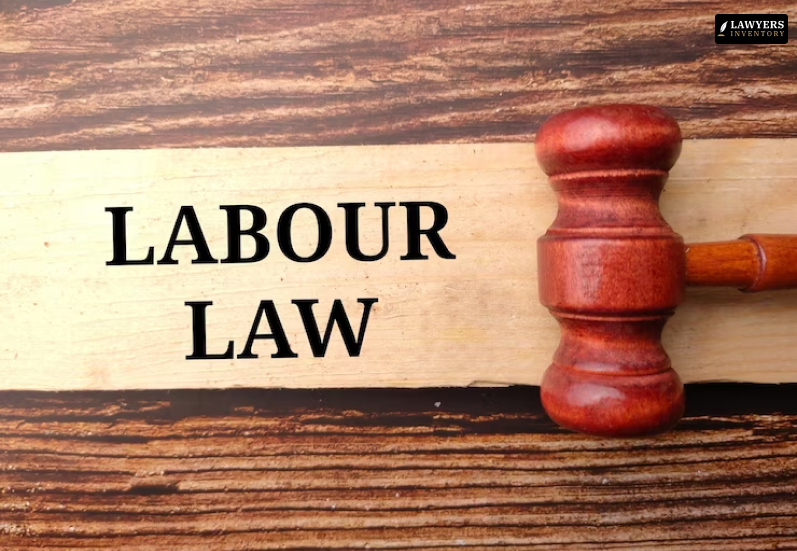
Lawyers have a multitude of career avenues to explore, one of which involves specializing in labour lawyer, commonly known as labor law. These legal professionals dedicate their practice to offer guidance and representation to both employers and employees.
After all, we are all dealing with various legal aspects within the workplace.
If you’re inclined toward a rewarding career in employment law, there are several foundational steps. You can follow these to become a labour lawyer. This article aims to elaborate on the nature of labour law in the United States. Additionally, we will also talk about the responsibilities of labor lawyers.
Thus, we outline an eight-step approach toward pursuing this profession.
What Are Labour Laws In The US?

Labor laws encompass a wide array of regulations and rules specifically designed for employment scenarios. These laws aim primarily to safeguard the rights of workers. Common disputes involving labor laws involve the following.
– Negotiating collective bargaining with unionized workers
– Addressing issues of discrimination and harassment
– Enforcing the Family and Medical Leave Act (FMLA)
– Handling cases of wrongful termination
– Resolving worker’s compensation claims
What Is Labour Law?

The terms “labor law” and “employment law” cover similar subjects and concerns in the workforce.
While a labour lawyer can be synonymous with an employment lawyer, the former typically deals specifically with disputes related to unions.
The National Labor Relations Board (NLRB) serves as an administrative body settling disputes between unions and employers. Additionally, it determines union representation for employee groups and sets rules for union formation.
The NLRB also oversees regulations and procedures for unions and manages investigations of unfair labor practices. NLRB attorneys acts on behalf of the General Counsel. Additionally, they handle various tasks like investigating unfair labor practice charges.
Therefore, labour lawyers handle litigating cases, conduct union representation elections, and preside over contested representation matters.
Employment laws cover interactions between employers and employees, differentiating between at-will employees and contingent workers, such as contract workers.
In most states, employment is considered at will, allowing employers to terminate employees for any lawful reason. Each state’s employment laws regulate employment contracts. Therefore, these are the contracts that outline clauses applicable to both employers and employees.
What Does A Labour Lawyer Do?

A labour lawyer is a legal expert specializing in guiding individuals through workplace-related conflicts. These professionals advocate for fair treatment for both employers and employees.
Therefore, they ensure compliance with labor laws. It’s their duty to navigate various regulations that safeguard workers’ rights.
It’s important to distinguish between a labour lawyer and employment lawyer. Both deal with work-related issues.
Labour lawyers specifically handle matters involving unionized employees, unions, and employers. On the other hand, employment lawyers operate within a broader scope, addressing legal aspects across general workplace settings.
How To Become A Labour Lawyer?

Each person’s journey to becoming a labour lawyer varies, but there are key steps to get there.
Obtain Your Bachelor’s Degree
Start by earning an undergraduate degree in any field. While there’s no specific major required for law school, a legal background might be helpful
Moreover, look for internships or fellowships during college to gain practical legal experience. Remember, these can boost your law school applications. Additionally, opportunities in law firms, legal clinics, or government offices can be valuable.
Take Your LSAT To Become A Labour Lawyer
When you’re finishing college, you’ll need to apply to law school. The first thing to do is take a test called the LSAT. Therefore, you can take in June or September before your last year in college ends. Doing well on this test is important because it shows how good you might be in law school.
Some schools have a minimum score they want from students. Therefore, before taking the test, set a goal for the score you want to achieve.
Many folks preparing for law school take special classes or study with friends to get ready for the LSAT. There are lots of materials and ways to practice for the test. If you don’t get the score you wanted on your first try, don’t worry! You can take the test again to try and do better.
Apply to Law Schools
When you’re in your last year of college, gather your application materials like recommendation letters and transcripts. Register with the Credential Assembly Service (CAS) and apply to several law schools. Choose schools with programs that match your labour law interests.
Set Goals for Law School
Once you’re admitted, plan your time well. During the three years of law school, a potential labour lawyer has to focus on doing well in your courses. Join study groups, perform your best in exams, and grab chances for real-world experience.
Specialize in Labour Law To Become A Labour Lawyer
In your second and third years, take elective courses related to labor law. Consider classes covering various employment-related topics. Also, in your third year, take the Multistate Professional Responsibility Examination (MPRE), which most lawyers need.
Network and Gain Experience
Build a network with legal professionals, professors, and peers. Seek practical experiences in labor law through internships, clubs, and law journals during law school. Work alongside lawyers or judges to gain firsthand legal experience.
Graduate and Prepare for the Bar Exam
After completing law school, focus on securing work opportunities. While job hunting, prepare meticulously for the bar exam. Moreover, passing the bar exam is crucial for practicing labour law in your state.
Pass the Bar Exam
Study hard and pass the bar exam, an essential step to become a certified lawyer. Moreover, if you don’t succeed on your first try, you can take the exam again.
Finally, A Labour Lawyer Starts Practicing Labor Law

Once you’re certified, find opportunities to practice labor law. Your law school might offer resources for job seekers. Moreover, you can join professional organizations, attend interviews, and explore online opportunities to land a job in labor law.
To Conclude
Labour lawyers are like workplace protectors. Therefore, they help workers with problems at their jobs, making sure everyone is treated fairly and follows the rules. They fight for employees’ rights and try to solve work issues so that everyone feels safe and respected at work.
Read Also:
- How To Choose A Good Lawyer
- Who Is An Administrative Lawyer?
- Who Is A Health Lawyer And When To Hire Them?











0 Reply
No comments yet.